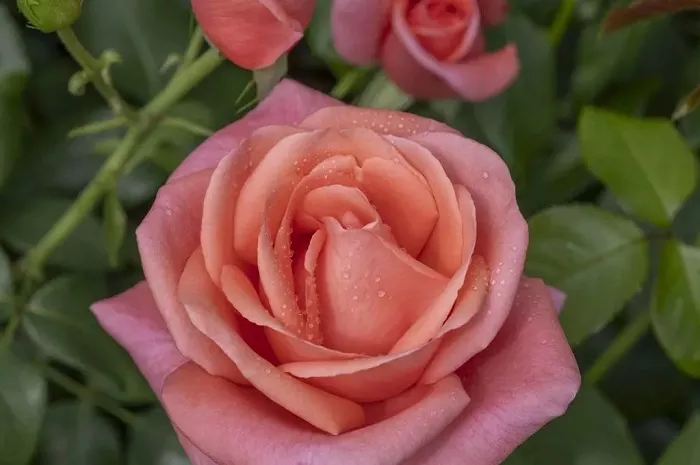Rose-growers are eagerly anticipating the summer displays of vibrant blossoms. Fortunately, there is an easy way to help roses flower for longer.
Roses are one of the UK’s most beloved and iconic flowers. They are associated with love and romance, as well as secrecy and mysticism. Roses come in a veritable rainbow of colours, from ruby red to soft pink to pure white. However, to ensure they keep flowering, there is one task that should be done repeatedly during summer.
According to gardening expert and BBC presenter Monty Don, roses should be deadheaded during mid-summer at least once a week. Ideally, this should be done every day. Deadheading, which refers to removing the wilted blossoms to allow for new growth to come through, is crucial for maintaining the health and vibrancy of many flowers.
Monty explained in his blog that deadheading effectively prunes the plant, stimulating fresh side shoots that bear new flower buds and thus extend the flowering season. It also stops the plant from developing seeds, which take precedence over the plant’s supplies of nutrients and water. This increases the chance of repeat flowering.
To deadhead roses, you can simply pull off the old flower heads. However, Monty advises that the best approach is to use a pair of secateurs to cut back to the first leaf below the dead flower. After doing this, a new shoot should grow to replace the dead one, as the plant’s energy has been diverted from the faded flower and any emerging rosehips.
Monty also notes that some roses, particularly species of bushes, produce great hips in autumn. These will only develop if the flowers are allowed to set seed, so it’s best not to deadhead them in this case.
In addition to deadheading, roses should be watered regularly during summer, especially as the weather becomes quite hot. This ensures they receive a necessary amount of minerals and hydration. Since roses are continually growing and are quite hungry plants, they should be supplied with fertiliser roughly every two to three weeks to grow to their full potential.
Another important step is to ward off common pests like aphids, which are known to damage roses by creating small holes in the plant’s tissue. To get rid of aphids, you can either spray them with water or introduce an aphid predator, like ladybugs.


